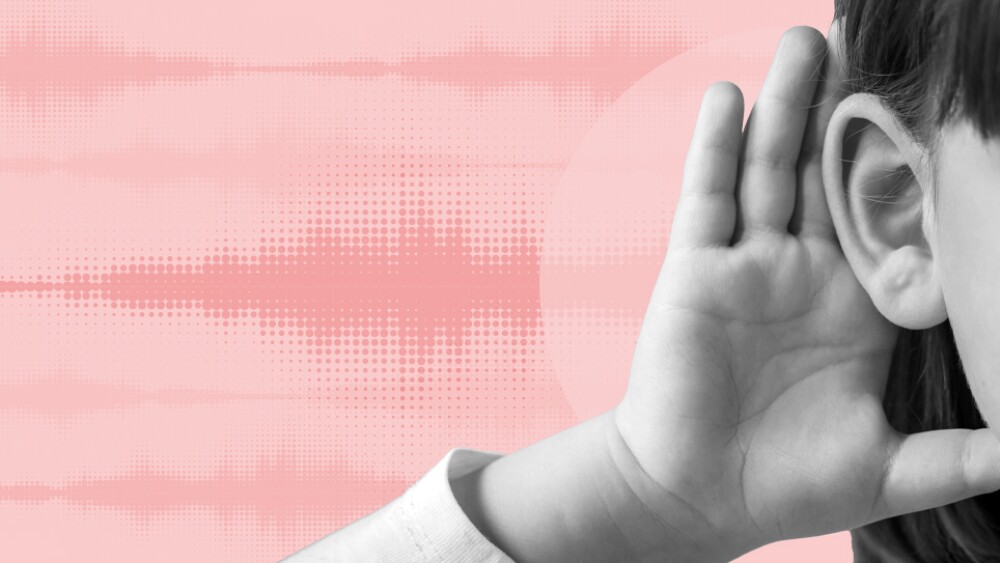As in-class learning has been affected in much of the country due to the COVID-19 pandemic, the Government of Canada, through its COVID-19 Immunity Task Force, is supporting three research projects that will estimate how many teachers and school personnel have been infected with SARS-CoV-2, the virus that causes COVID-19.
MONTREAL, March 04, 2021 (GLOBE NEWSWIRE) -- As in-class learning has been affected in much of the country due to the COVID-19 pandemic, the Government of Canada, through its COVID-19 Immunity Task Force (CITF), is supporting three research projects that will estimate how many teachers and school personnel have been infected with SARS-CoV-2, the virus that causes COVID-19. Approximately $2.9 million has been provided for three studies, one each in Ontario, Quebec and British Columbia, to help further inform decision-making around prevention strategies in neighbourhoods, schools and daycares. This will also help with vaccine surveillance once vaccines are given to teaching personnel. The studies will also evaluate the effects of the pandemic on teachers’ mental health.
All three studies will ask teachers and education workers for blood samples to establish how many have antibodies to SARS-CoV-2, which would indicate a previous COVID-19 infection. The studies will also ask participants to complete a questionnaire to determine both the risks they have faced and the protective measures they have taken, at the individual, household, school, and community levels. When a vaccine becomes available to education workers, these studies will determine how many teachers agree to be vaccinated and whether antibodies are detected in their blood after vaccination at several points in time.
The Ontario study aims to enroll up to 7,000 teachers and education workers and will follow participants for 12 months to determine the factors associated with infection.
“Blood tests are an important part of our study,” explains Dr. Brenda Coleman, PhD, researcher at Sinai Health and Assistant Professor at the Dalla Lana School of Public Health, University of Toronto. “They allow us to determine how many participants have already been exposed to the virus, how many become exposed between enrolment and the end of the study, whether vaccination induces antibodies, and whether antibody levels change over time. We also ask participants to fill out the questionnaires to assess levels of distress over time.”
The study in British Columbia will focus on both staff and students within the Vancouver School District. It aims to determine how many staff members in Vancouver schools have already been infected with COVID-19 by checking blood samples for antibodies. The study will also examine the risk of exposure to the virus in schools and assess the impact of the pandemic on the mental health of staff members.
“To get a more complete picture of how many people are exposed to the virus in schools, the research team will check blood samples from staff for antibodies indicating a previous exposure,” says lead researcher Dr. Pascal Lavoie, MD, PhD, investigator at the BC Children’s Hospital Research Institute, pediatrician, and Associate Professor in the Department of Pediatrics at the University of British Columbia (UBC). “Additionally, in the months to come, when a student or staff member has been declared positive for COVID-19, we will test their close contacts using a non-invasive mouth rinse gargle test that was first evaluated and implemented at BC Children’s Hospital.”
The Quebec study will build on an existing CITF-funded study named EnCORE, which has been determining how many children and adolescents have had SARS-CoV-2 infections in four Montreal neighbourhoods. The new study will use the same schools and daycares being used for EnCORE in Beaconsfield, Hochelaga-Maisonneuve, Montreal-North and the Plateau, but will expand to include school staff. The study will determine how many daycare and school staff members have had SARS-CoV-2 and will measure how antibody levels fluctuate over the next six months. The study will also establish the prevalence of pandemic-related emotional and mental health issues among daycare and school personnel in Montreal.
“Participation involves completing an online questionnaire to collect information on health, socio-demographics, COVID-19 prevention practices, and mental and emotional health,” explains project lead Dr. Kate Zinszer, PhD, Assistant Professor at l’École de santé publique, Université de Montréal, and researcher at the Public Health Research Institute. “We will also be asking whether they have received a vaccine, and which one, and incorporating this information into our analysis.”
“Although daycare and school staff may have been exposed to SARS-CoV-2 in their work settings, we don’t have much data on how many school staff have had asymptomatic infections, meaning they had no symptoms but potentially could transmit the virus,” says Dr. Catherine Hankins, co-Chair of the CITF. “The pandemic has also had negative impacts on the mental health and wellbeing of daycare and school personnel for various reasons which the studies will document. Examples include feeling anxiety about the potential risk of SARS-CoV-2 infection, being responsible for ensuring compliance with infection control measures, and experiencing the disruption that the pandemic has had on their work and their workplace.”
“These studies will help us understand more about COVID-19 infection among staff in educational settings,” says Dr. Theresa Tam, Chief Public Health Officer of Canada. “By including questionnaires that delve more deeply into teachers’ experiences, including their mental health, this research will help develop strategies to support the well-being of teachers and daycare staff.”
Researchers will inform participating school staff if they have antibodies to SARS-CoV-2, although that still does not guarantee immunity against the virus that causes COVID-19.
School personnel wishing to participate in one of the three studies can go to: Quebec study: encorestudy.ca, BC study: bcchr.ca/COVIDatschools, Ontario study: tibdn.ca/covid-19/education
ABOUT THE COVID-19 IMMUNITY TASK FORCE
In late April 2020, the Government of Canada established the COVID-19 Immunity Task Force with a two-year mandate. The Task Force is overseen by a Leadership Group of volunteers that includes leading Canadian scientists and experts from universities and healthcare facilities across Canada who are focused on understanding the nature of immunity arising from the novel coronavirus that causes COVID-19. To that end, the CITF is supporting numerous studies to determine the extent of SARS-CoV-2 infection in Canada (in the general population as well as in specific communities and priority populations), understand the nature of immunity following infection, develop improved antibody testing methods, and help monitor the effectiveness and safety of vaccines as they are rolled out across Canada. The Task Force and its Secretariat accordingly work closely with a range of partners, including governments, public health agencies, institutions, health organizations, research teams, other task forces, communities, and stakeholders. Most recently, the Task Force has been asked to take a major role in supporting vaccine surveillance for effectiveness and safety. Our overriding objective is to generate data and ideas that inform interventions aimed at slowing and ultimately stopping the spread of SARS-CoV-2 in Canada. For more information visit: www.covid19immunitytaskforce.ca
MEDIA CONTACTS
COVID-19 Immunity Task Force
media@covid19immunitytaskforce.ca
Rebecca Burns
Cell: +1.438.871.8763
BC Study
Alan Worsley, Research Communications, BC Children’s Hospital
Cell: +1. 604. 219.4685
Work: +1.604.875.2401
Alan.Worsley@bcchr.ca
Quebec study
Jeff Heinrich, Université de Montréal
jeff.heinrich@umontreal.ca




